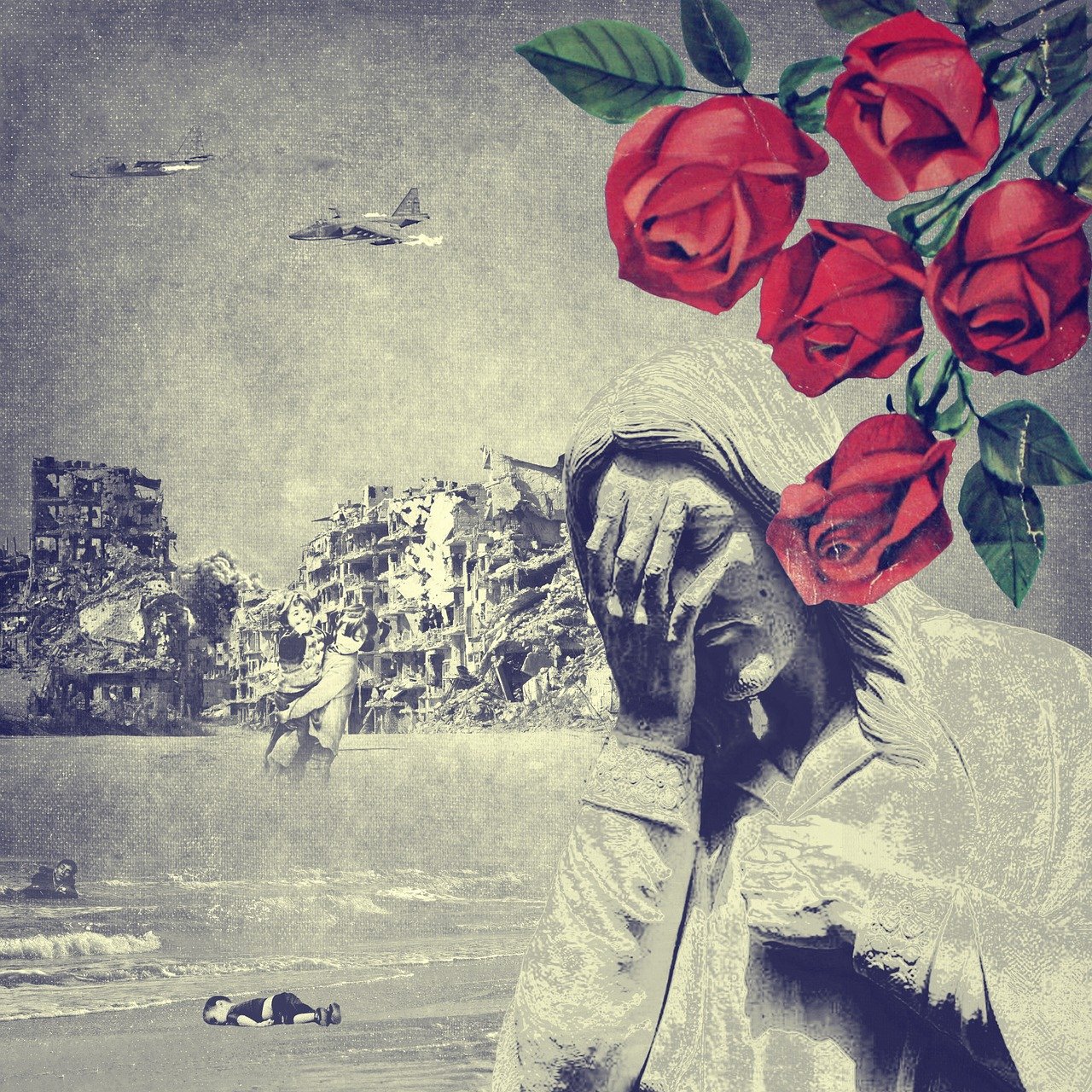by Ahmet Bekisoglu and Gulbin Ahmad
The attacks last only moments, but the consequences endure much longer. Turkey’s and Iran’s bombings not only disrupt daily life but also severely impact healthcare services in Rojava.
The region has been dealing with violence against women perpetrated by the Turkish state, using tactics like private warfare, abductions, arbitrary arrests, sexual violence and drug promotion. These methods not only worsen violence against women, but also contribute to higher rates of female suicide. Despite these hurdles, initiatives have been launched to combat physical and psychological violence.
More than a decade ago, the ‚Rojava Revolution‚ began amidst the chaos of the Syrian civil war, when three regions (Cizîrê, Kobanî, Afrin) predominantly inhabited by Kurds in Syria declared independence, seeking to establish a self-governing, democratic system, free from the corruption and injustice of the Ba’ath regime. This newly formed administration has aimed to cultivate a society that values community, gender equality, and environmental consciousness, with communes and councils serving as representatives of and from the people. This political framework presents a clear departure from the oppressive practices of the previous Ba’ath regime. Within this society, individuals actively participate in various local and social activities, contributing to the functioning of communes, councils, and healthcare initiatives, with a specific focus on empowering women.
In its fourteenth year, the situation in the Syrian civil war has escalated dramatically, with a staggering 16.7 million people in Syria urgently requiring humanitarian assistance. This figure includes more than 8 million women and girls, with about 4.1 million falling within the reproductive age range. In addition, gender-based violence remains widespread, with alarming increases in child marriage rates.
This at-risk population faces increased dangers of violence and exploitation and struggles to access necessary services. Meanwhile, communities in the Northwest are still dealing with the aftermath of the earthquakes that struck the area in February 2023, with ongoing recovery efforts. The earthquake in the spring of 2023 took the lives of tens of thousands of people and has had an especially devastating impact on the Kurdish communities in northern Syria. Instead of organizing aid deliveries and rapid interventions, the governments of Turkey and Syria have been exploiting the crisis for political purposes, particularly against the Kurdish population.
Women working in organizations like the Kurdish Red Crescent have become crucial healthcare providers, offering vital services to the community. Their efforts extend to treating the sick and wounded in liberated areas and providing care to women in conservative regions where cultural norms limit access to male medical providers. With approximately 60 clinics and mobile units in operation, access to essential healthcare services, including obstetrics and gynecology, has significantly improved. A notable example of this commitment occurred in November 2017, when mobile clinics in Tabqa and Al-Arish provided treatment services for around 200 women within ten days, performing both natural and cesarean deliveries. Furthermore, the establishment of facilities like the Maternity Hospital (ECOR) in Kobane, opened on September 15, 2016, as a reminder of the attacks of ISIS on September 15, 2014, underscores the dedication to enhancing women’s health. Moreover, awareness conferences and seminars on breast cancer detection and prevention have been diligently organized. The opening of a hospital in Qamishli to treat cancer diseases in December 2023 is a prime example of the endeavors that have been undertaken with that objective.
In spite of these efforts, there has been an alarming rise in cancer infections, particularly among women in the region, attributed to environmental factors such as pollution and contaminated food. Discrimination and inequality continue to limit women’s prospects, exposing them to increased risks of sexual exploitation and abuse.
By 2030, the Sustainable Development Goals (SDGs), in particular the third goal, good health and well-being, ambitiously stipulate that global players should take measures to guarantee basic healthcare for everyone. This includes reducing the mortality of women, mothers, and children specifically. The Rojava region and its armed forces are important allies for the anti-IS coalition and are home to hundreds of US soldiers. However, a partnership is only possible with the consent of the civilian population. A functioning healthcare system is more than critical to guaranteeing peace and stability, combating the causes of flight, and keeping the morale of the population high. Therefore, the EU should improve Rojava’s medical situation through a multi-faceted approach, including increasing humanitarian aid and donations of medical supplies, partnering with NGOs, and investing in the rebuilding and equipping of hospitals.
Economic aid and selective sanctions relief can stabilize the region, directly supporting healthcare. Diplomatic efforts should focus on advocating for humanitarian corridors and supporting peace initiatives. Additionally, warning Turkish and Iranian-backed militias against attacking civilian infrastructure should be a key component of any measures taken by EU lawmakers.
Until then, the women and men in Rojava will face a long journey before these measures may become reality. With each passing day, the hardship and suffering of the people increases. However, giving up will not be an option for those who have been ravaged by the war for over a decade. „Resistance means life“ (Berxwedan jiyan e) is a well-known Kurdish proverb that is embodied by the people of Rojava, especially by the women, every single day.
Polis Blog serves as a platform at the disposal of ‘Polis180’s &‘OpenTTN‘s members. Published comments express solely the ‘authors’ opinions and shall not be confounded with the opinions of the editors or of Polis180.
Image via pixabay.com
Ahmet Bekisoglu is a sixth-year medical student from Germany and is involved in war-related health and foreign policy affairs. He is a member of the German Council on Foreign Relations and runs an initiative on the psychological consequences of trauma and war.
Gulbin Ahmad is originally from Rojava and currently a second-year medical student in Germany. She has special interest in Middle Eastern equality movements and medicine.
Zurück